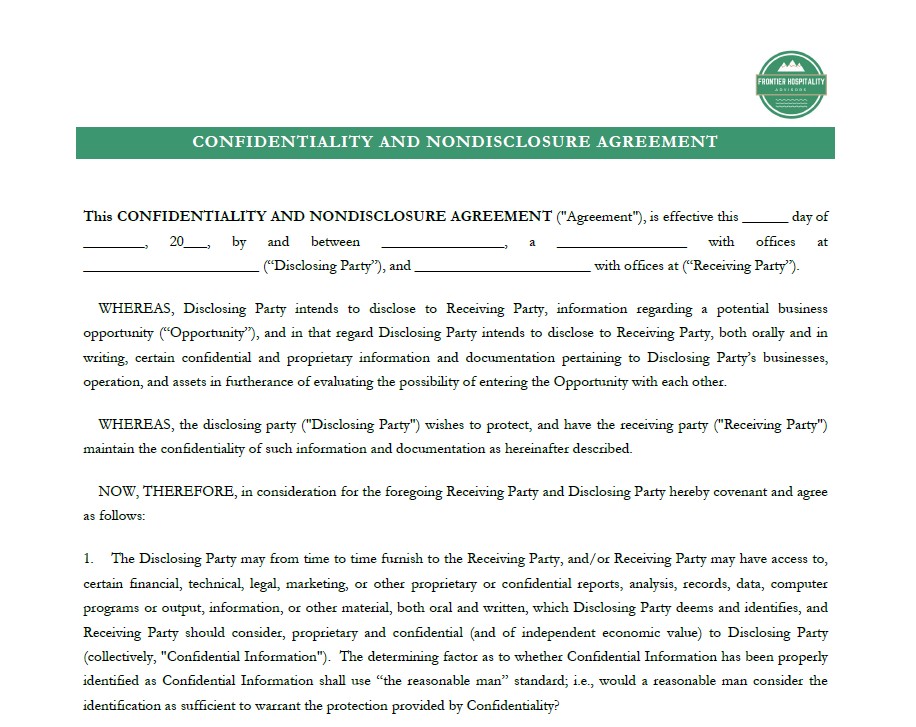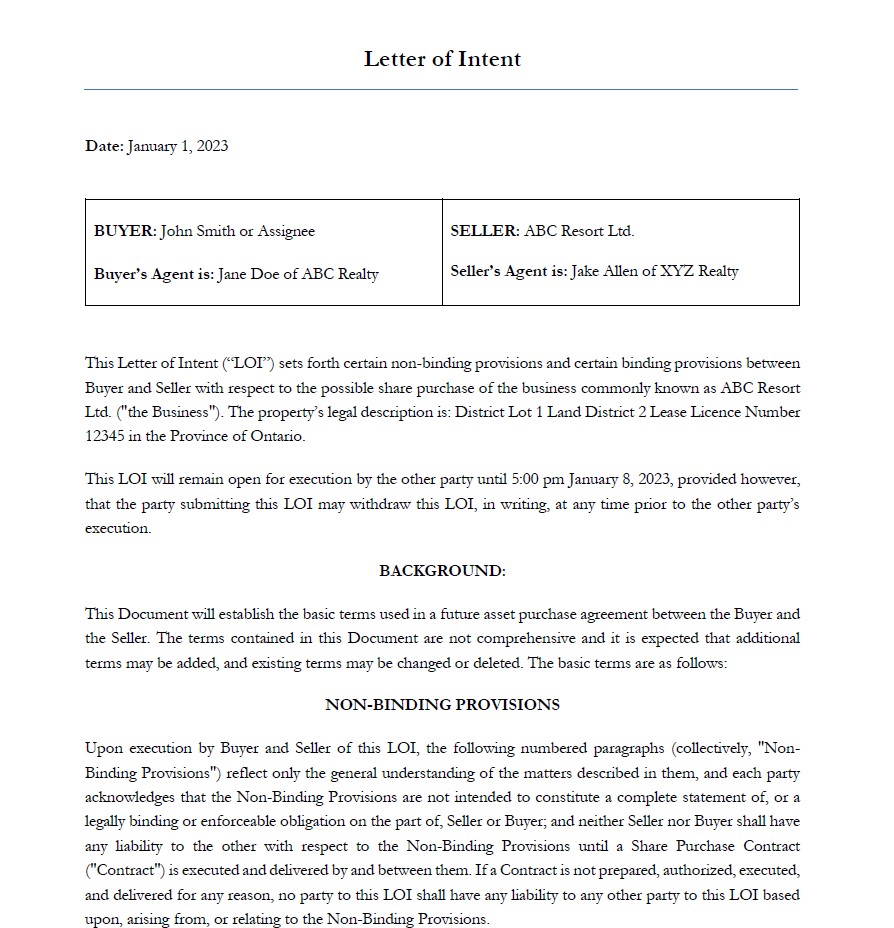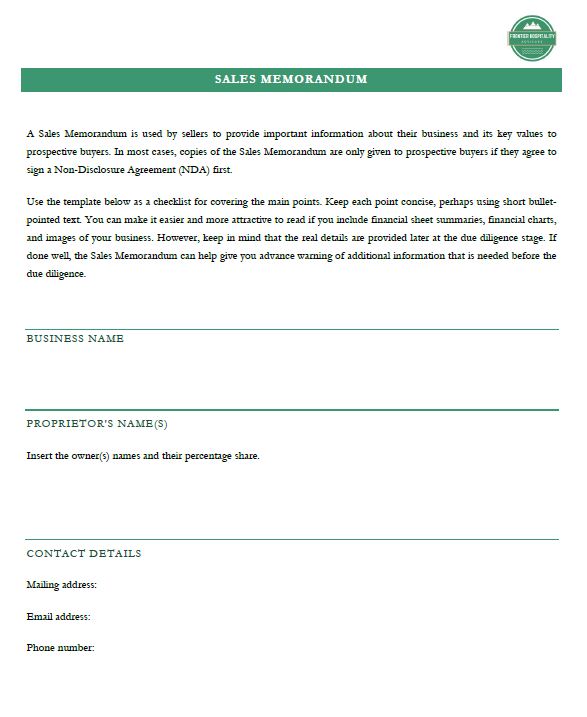Lodge and Resort Sale Non-Disclosure Agreement
In the lodge and resort industry, Non-Disclosure Agreements (NDAs) play a crucial role in maintaining confidentiality during the sale process. A well-structured NDA ensures that sensitive information is safeguarded from unauthorized access and disclosure. This article will delve into the definition and importance of NDAs when it comes to selling a lodge or resort.
What is a Non-Disclosure Agreement (NDA)?
A Non-Disclosure Agreement (NDA) is a legally binding contract that establishes a confidential relationship between two or more parties involved in the lodge or resort sale process. This agreement obligates the signing parties, often the potential buyers and the owners or sellers, to keep certain information confidential and not disclose it to third parties without explicit consent. The purpose of an NDA is to protect sensitive and proprietary data during negotiations and due diligence.
Importance of NDAs in Lodge and Resort Sales
In the context of lodge and resort sales, NDAs are of paramount importance for several reasons. Firstly, lodges and resorts hold valuable information, such as financial statements, occupancy rates, marketing strategies, and guest databases, which, if leaked, could compromise the business’ competitive advantage. Secondly, disclosing sensitive information without proper protection could lead to potential buyers gaining unfair advantages in the market or using the information against the lodge or resort’s interests. Hence, NDAs provide legal recourse and act as a deterrent against unauthorized disclosure.
Key Components of a Lodge or Resort Sales NDA
A comprehensive NDA for a lodge or resort sale should contain the following key components:
- Identification of Parties: Clearly identify the parties involved in the agreement, namely the disclosing party (owner or seller) and the receiving party (potential buyer or investor).
- Definition of Confidential Information: Precisely define what information is considered confidential. This may include financial data, operational reports, marketing plans, employee details, and any proprietary intellectual property related to the lodge or resort.
- Purpose and Permitted Use: State the purpose for which the receiving party may access the confidential information, typically limited to evaluating the lodge or resort’s potential acquisition and conducting due diligence.
- Obligations and Restrictions: Clearly outline the obligations of the receiving party, including a commitment to maintain confidentiality and refrain from sharing the information with unauthorized individuals or entities.
- Duration of Confidentiality: Specify the duration for which the NDA remains in effect, typically for a certain number of years after the disclosure of the confidential information or until the information becomes publicly available through legitimate means.
- Exceptions: Include provisions for any exceptions to the confidentiality obligations, such as disclosures required by law or court orders.
- Consequences of Breach: Clearly state the consequences of breaching the NDA, which may include legal action and financial penalties.
Conclusion
In conclusion, Non-Disclosure Agreements (NDAs) are a critical aspect of lodge and resort sales, ensuring that sensitive information remains protected throughout the negotiation process. By safeguarding proprietary data, lodge and resort owners can confidently share valuable information with potential buyers while maintaining a competitive edge in the market. The implementation of well-structured NDAs promotes trust and transparency, fostering a conducive environment for successful transactions.
Download the Lodge and Resort Sale Non-Disclosure Agreement
This article has been prepared by Frontier Hospitality Advisor for general information only. Frontier Hospitality Advisor makes no guarantees, representations or warranties of any kind, expressed or implied, regarding the information including, but not limited to, warranties of content, accuracy and reliability. Any interested party should undertake their own inquiries as to the accuracy of the information. Frontier Hospitality Advisor excludes unequivocally all inferred or implied terms, conditions and warranties arising out of this article and excludes all liability for loss and damages arising there from.


